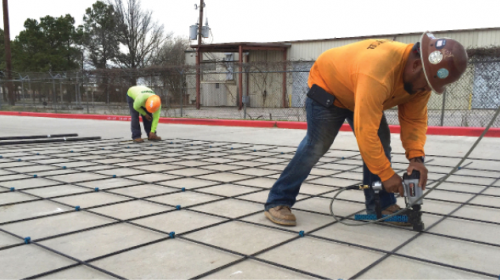As composites of fibers embedded in polymeric resins, fiber-reinforced polymers (FRP) have emerged as an alternative to steel for concrete reinforcing bars, offering weight savings, strength and corrosion-rooted durability advantages, and longer service life. Manufacturing advances have positioned FRP rebar as competitive with conventional steel reinforcement, and very competitive with higher performance epoxy-coated and stainless steel rebar, according to A-Lok Products.
A well-established source of concrete drainage structure accessories, A-Lok recently added to its product offerings the epoxy resin-bound, basalt fiber GatorBar. Like other steel alternatives, basalt FRP production costs have been higher than steel, owing to typical production rates of 5- to 10-ft./minute. A proprietary process is now yielding GatorBar at 75- to 120-ft./minute rates. Basalt fiber also takes less energy to produce than carbon or glass fiber and steel.
Price parity is not the only benefit of basalt FRP, A-Lok notes. Compared to steel rebar, GatorBar has a 7x weight advantage and double the service life. Higher tensile strength properties enable a #3 GatorBar to compete with a #4 steel rebar. — A-Lok Products, Tullytown, Pa., 800/822-2565, 215/547-3366; www.a-lok.com

